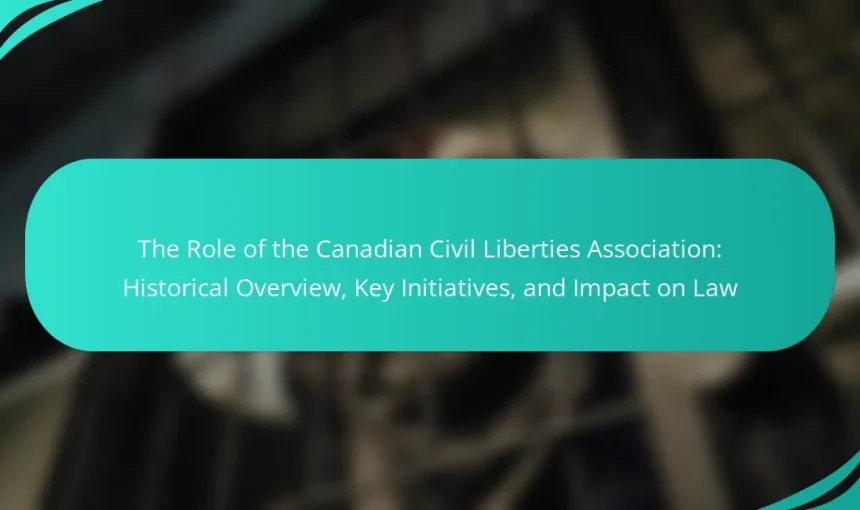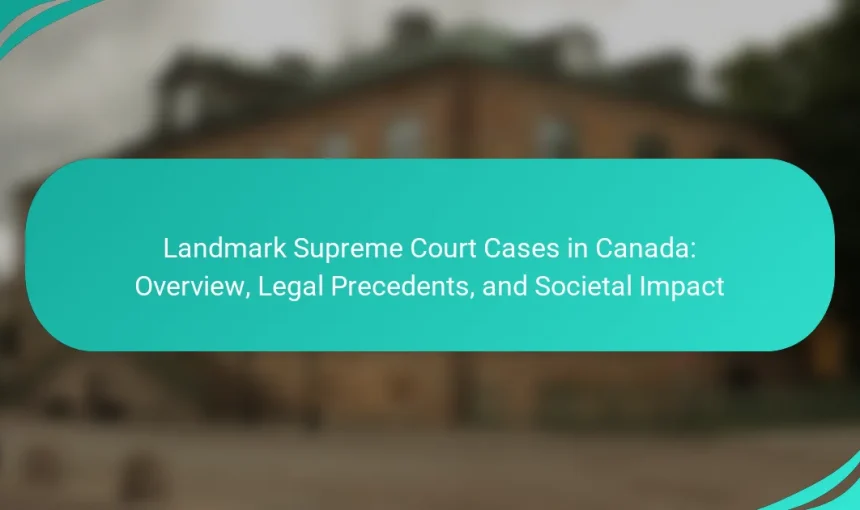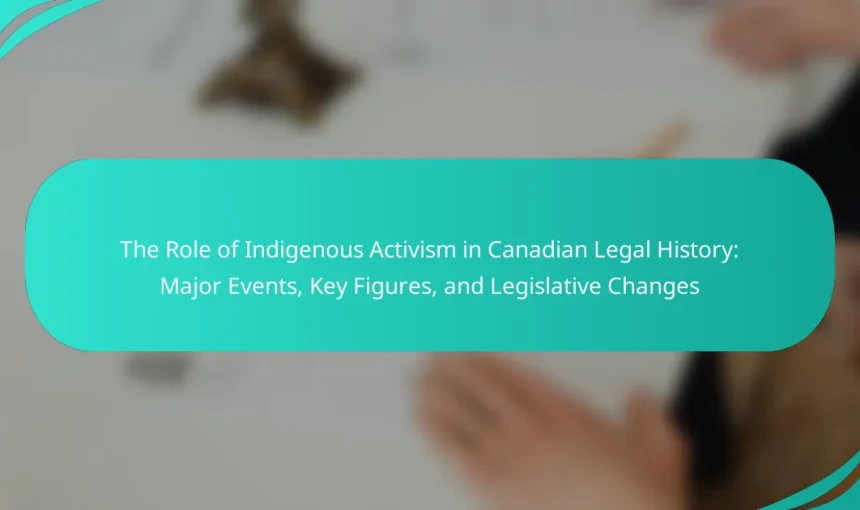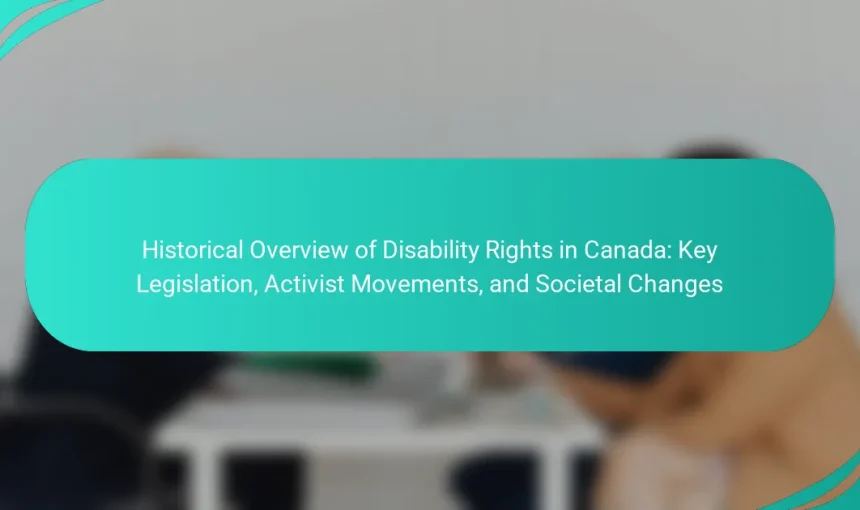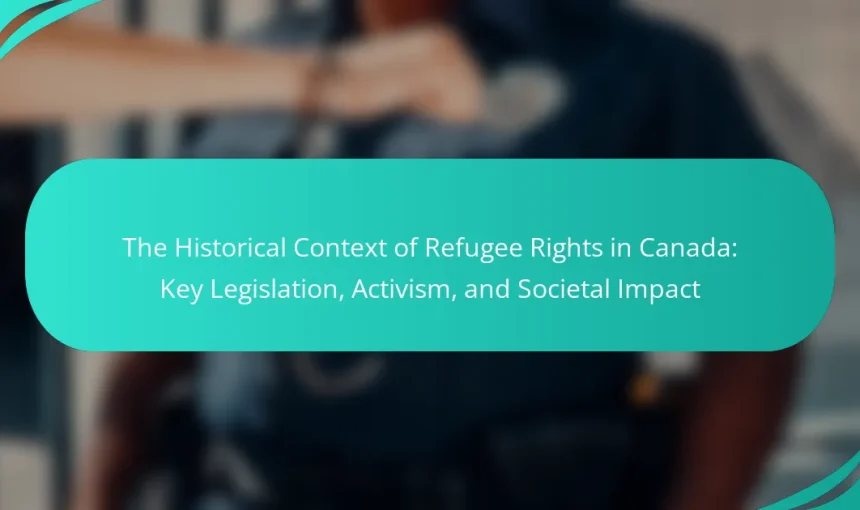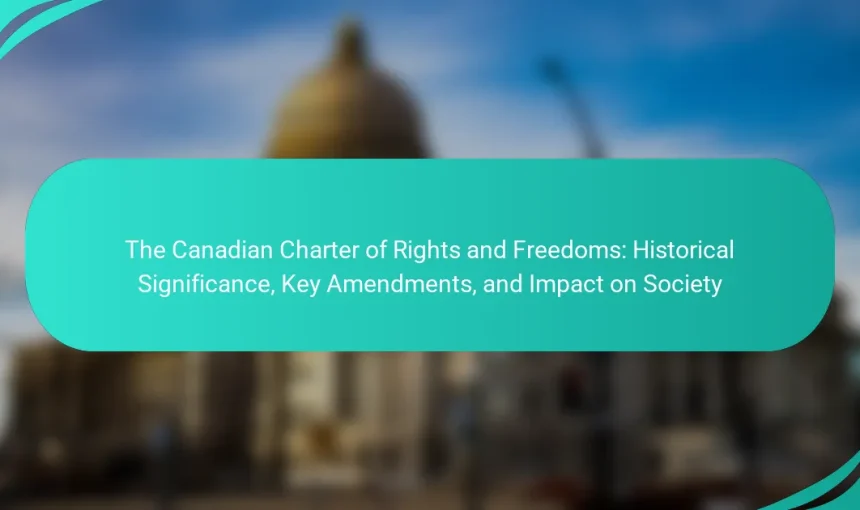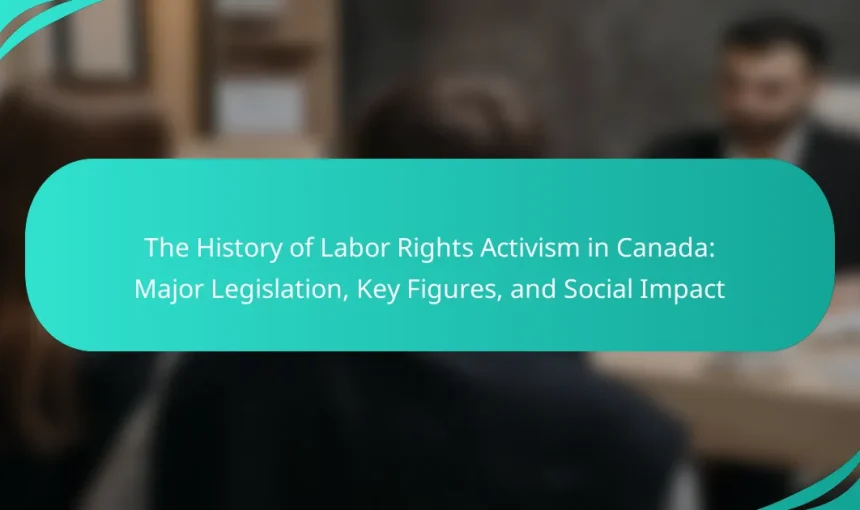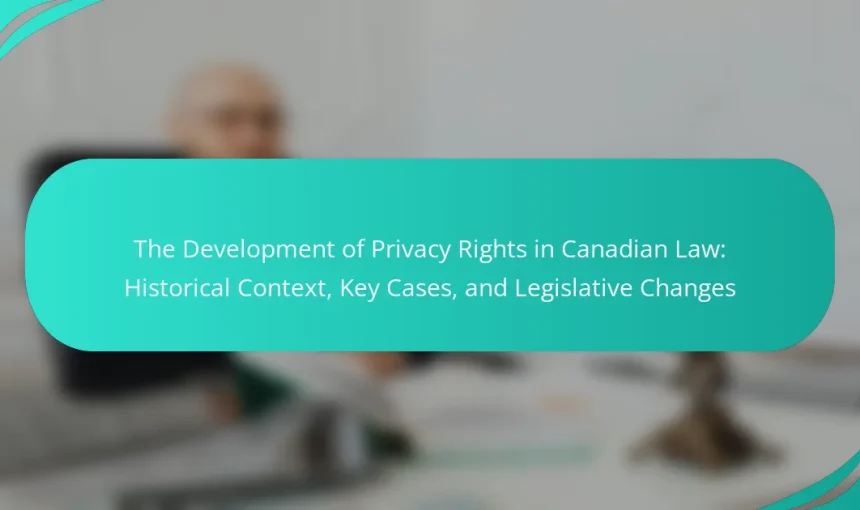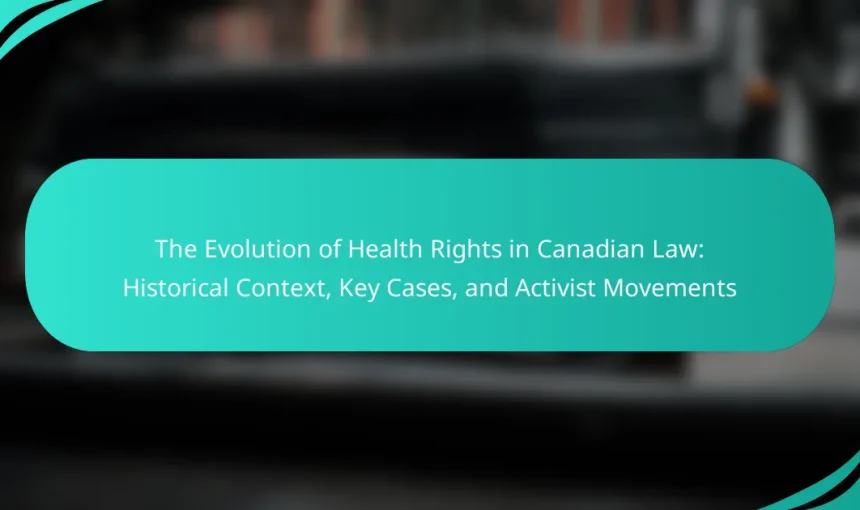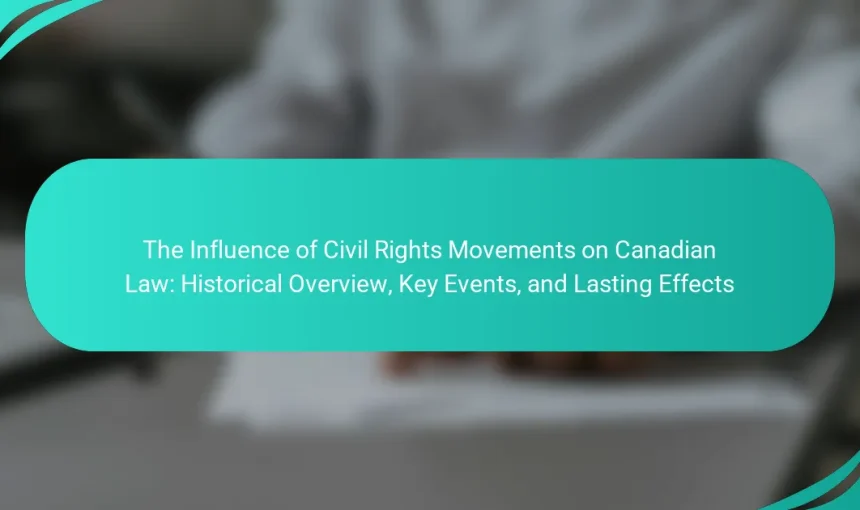What is the Canadian Civil Liberties Association? The Canadian Civil Liberties Association (CCLA) is a non-profit organization dedicated to protecting civil liberties and human rights in Canada. Founded in 1964, it advocates for the rights of individuals against government overreach. The CCLA engages in legal action, public education, and policy advocacy. It addresses issues such […]
What are Landmark Supreme Court Cases in Canada? Landmark Supreme Court cases in Canada are significant legal decisions that have shaped Canadian law and society. These cases often address fundamental rights, freedoms, and constitutional issues. Notable examples include R. v. Morgentaler, which decriminalized abortion, and R. v. Oakes, establishing the Oakes test for determining the […]
What is the role of Indigenous activism in Canadian legal history? Indigenous activism has played a crucial role in shaping Canadian legal history. It has influenced landmark legal decisions and policies affecting Indigenous rights. Activists have fought for land rights, self-governance, and recognition of treaties. Key events include the Calder case in 1973, which acknowledged […]
What is the Historical Overview of Disability Rights in Canada? The historical overview of disability rights in Canada shows significant progress over the decades. In the early 20th century, people with disabilities faced widespread discrimination and exclusion. The 1970s marked a turning point with the emergence of advocacy movements. Activists demanded equal rights and accessibility, […]
What is the historical context of refugee rights in Canada? The historical context of refugee rights in Canada is shaped by various legislative and social developments. Initially, Canada lacked formal refugee protections. The Refugee Protection Act was enacted in 2001, establishing a legal framework for asylum seekers. Prior to this, the 1951 Refugee Convention influenced […]
What is the Canadian Charter of Rights and Freedoms? The Canadian Charter of Rights and Freedoms is a constitutional document that outlines the rights and freedoms of Canadian citizens. It was enacted in 1982 as part of the Canada Act. The Charter guarantees fundamental freedoms such as freedom of expression, assembly, and religion. It also […]
What is the History of Labor Rights Activism in Canada? Labor rights activism in Canada has a rich history marked by significant movements and legislation. The labor movement began in the early 19th century, with workers advocating for better working conditions. Key events include the 1872 Toronto Typographical Union strike, which led to the legalization […]
What are Privacy Rights in Canadian Law? Privacy rights in Canadian law refer to the legal protections individuals have regarding their personal information. These rights are rooted in various statutes and common law principles. The Canadian Charter of Rights and Freedoms under Section 7 protects the right to life, liberty, and security, which includes privacy […]
What is the historical context of health rights in Canadian law? Health rights in Canadian law have evolved significantly since the mid-20th century. The introduction of universal healthcare in 1966 marked a pivotal moment. The Medical Care Act established a framework for publicly funded health services. This legislation aimed to ensure access to healthcare for […]
What is the influence of civil rights movements on Canadian law? Civil rights movements have significantly influenced Canadian law by promoting equality and justice. These movements have led to the establishment of key legal frameworks. Notable examples include the Canadian Charter of Rights and Freedoms, enacted in 1982. This charter guarantees fundamental freedoms and equality […]
